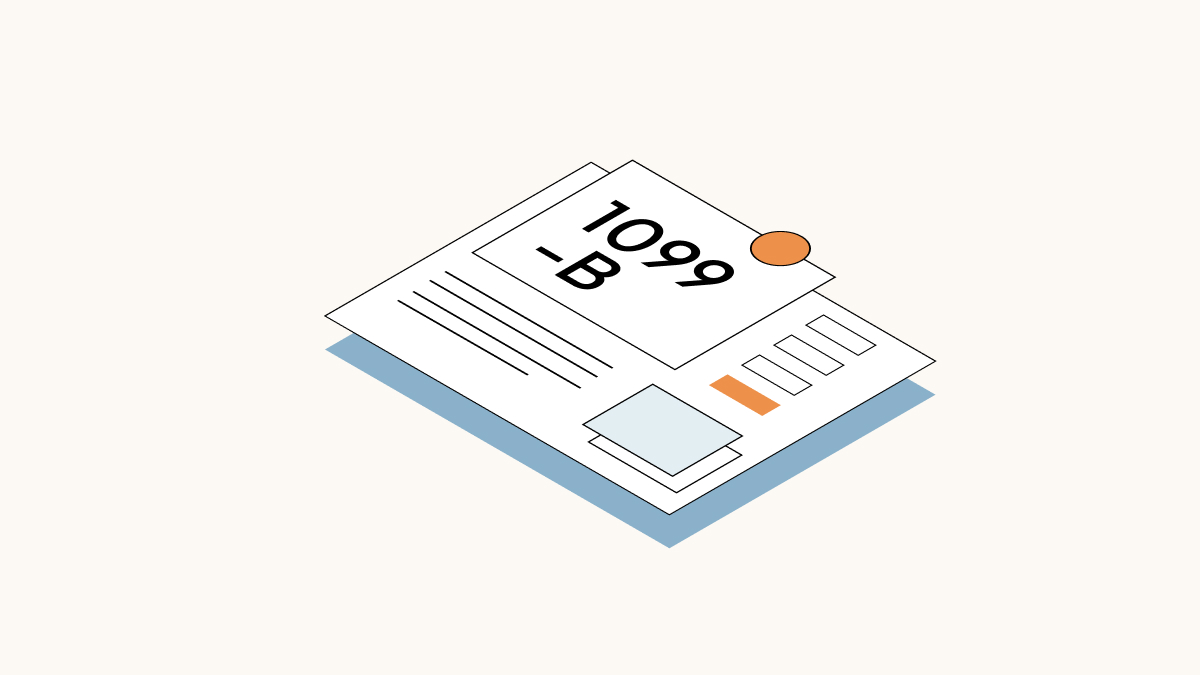What is Form 1099-B?
Form 1099-B is an IRS tax form that reports your proceeds from investment sales. If you’ve ever sold stocks or bonds, you may have received a Form 1099-B in the mail from your broker-dealer.
What is Form 1099-B for?
Form 1099-B reports the proceeds from sales of capital assets, such as stocks and bonds. U.S. tax law requires broker-dealers to report information about these sales to sellers and to the IRS.
Recipients of Form 1099-B use it to calculate capital gains or losses on their federal and state income tax returns. Capital gains are subject to the federal capital gains tax.
Who receives Form 1099-B?
Most people who sell capital assets will receive a Form 1099-B from their broker-dealer or other financial institution no later than February 15. For sales of assets that the IRS does not consider capital assets for tax purposes (such as collectibles and real estate), taxpayers do not receive a Form 1099-B.
What is a 1099-B supplemental statement?
A broker-dealer may provide a Form 1099-B supplemental statement to the seller along with Form 1099-B. This supplemental statement is a separate document that provides additional information about the cost basis of a transaction reported on Form 1099-B.
This information may include income you may have already paid taxes on when acquiring the assets. For instance, this could include ordinary income tax paid for the tax year you exercised your stock options.
→ Learn more about stock option taxes.
What is a 1099-B supplemental statement used for?
The 1099-B supplemental statement can be a useful reminder that you may need to make adjustments to the cost basis reported on Form 1099-B. In certain cases, you may have already paid taxes on income that was previously reported to the IRS.
For example, if you sold stock during the past tax year, your broker-dealer will report the proceeds from that sale on a Form 1099-B. This notifies the IRS that you had a reportable sale and you may owe capital gains tax on the proceeds from the sale. But how much you still owe the IRS will depend on two factors:
-
How long you held the stock: The amount of time you owned the stock you sold determines whether you’ll pay short-term or long-term capital gains tax.
-
Your cost basis: This is how much it cost you to acquire the stock, including any ordinary income that you already recognized at exercise or vesting. If the stock you sold came from restricted stock units (RSU), you’ll already have paid ordinary income tax on the fair market value (FMV) of the shares when you took ownership of them. If you sold RSUs, this amount would be your cost basis. Similarly, exercising stock options can also trigger ordinary income tax or the alternative minimum tax (AMT). Any income already recognized may be a factor in determining your correct cost basis.
To avoid paying taxes twice on the same income, you may need to make an adjustment on Form 8949 (Sales and Other Dispositions of Capital Assets), which is an attachment to Schedule D of your individual income tax return. Receiving a 1099-B supplemental statement does not mean that any adjustment was already made: Rather, the information on a 1099-B supplemental statement is meant to help you accurately report your cost basis and avoid paying taxes twice on the same income.
Why Carta issues a 1099-B supplemental statement
Carta Liquidity helps companies organize secondary transactions for their company shares, including tender offers. Because many of the employees who sell shares in these transactions could require cost-basis adjustments, Carta issues a 1099-B supplemental statement to help taxpayers and their tax professionals accurately report any gains and pay the appropriate amount in taxes.




